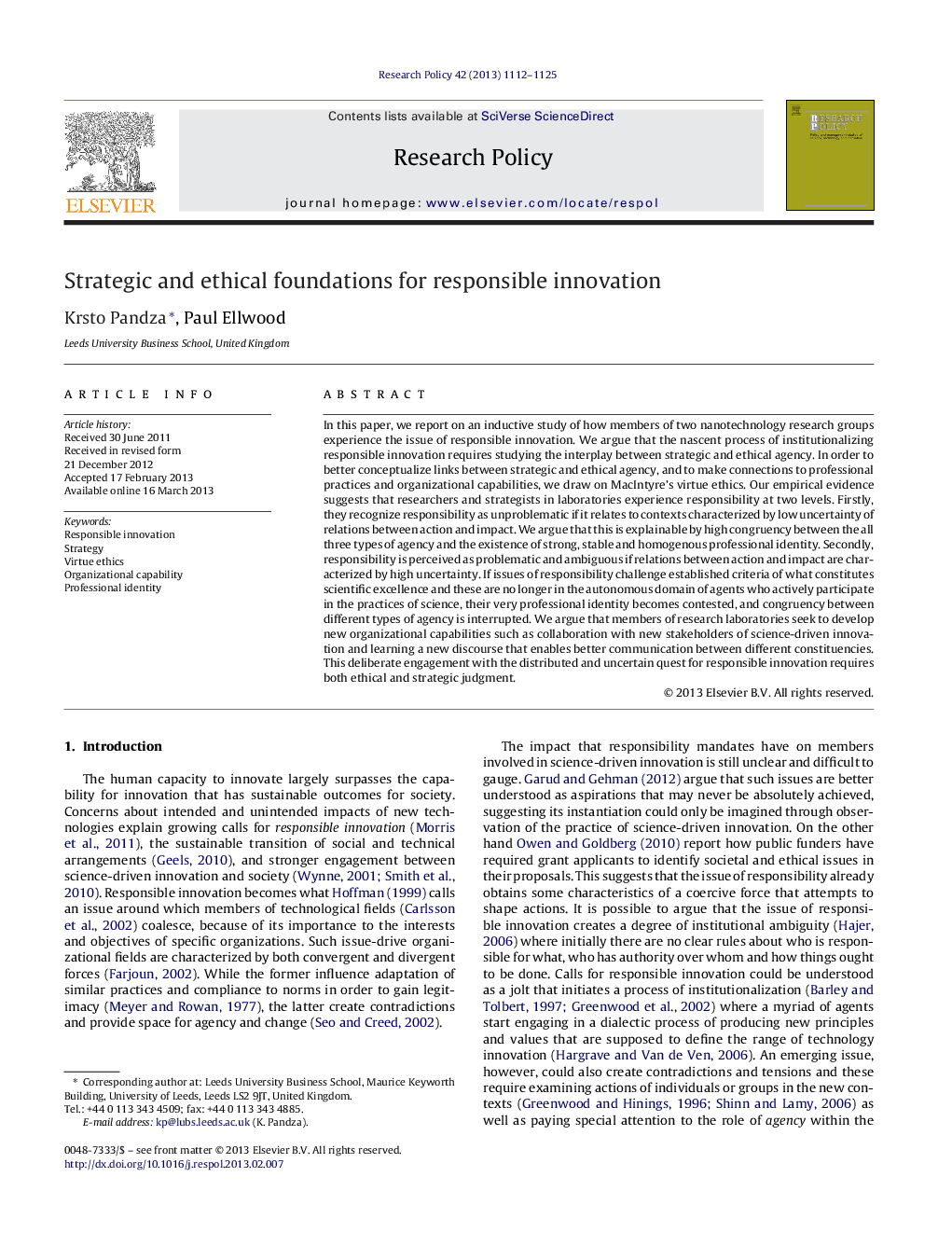| Article ID | Journal | Published Year | Pages | File Type |
|---|---|---|---|---|
| 984651 | Research Policy | 2013 | 14 Pages |
In this paper, we report on an inductive study of how members of two nanotechnology research groups experience the issue of responsible innovation. We argue that the nascent process of institutionalizing responsible innovation requires studying the interplay between strategic and ethical agency. In order to better conceptualize links between strategic and ethical agency, and to make connections to professional practices and organizational capabilities, we draw on MacIntyre's virtue ethics. Our empirical evidence suggests that researchers and strategists in laboratories experience responsibility at two levels. Firstly, they recognize responsibility as unproblematic if it relates to contexts characterized by low uncertainty of relations between action and impact. We argue that this is explainable by high congruency between the all three types of agency and the existence of strong, stable and homogenous professional identity. Secondly, responsibility is perceived as problematic and ambiguous if relations between action and impact are characterized by high uncertainty. If issues of responsibility challenge established criteria of what constitutes scientific excellence and these are no longer in the autonomous domain of agents who actively participate in the practices of science, their very professional identity becomes contested, and congruency between different types of agency is interrupted. We argue that members of research laboratories seek to develop new organizational capabilities such as collaboration with new stakeholders of science-driven innovation and learning a new discourse that enables better communication between different constituencies. This deliberate engagement with the distributed and uncertain quest for responsible innovation requires both ethical and strategic judgment.
► Strategic and ethical agencies are inseparable in the context of responsible innovation. ► Professional identity of scientist represents foundational element of responsible innovation. ► Ethical judgment is needed to enact a core organizational capability. ► In circumstances of wide range of interest professional identity becomes contested and both strategic and ethical judgment is needed for development of responsible innovation. ► Ethical agency is instrumental to engage with wider process of creating new social values.
